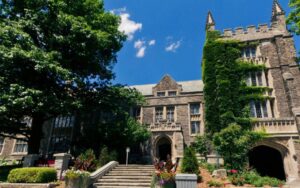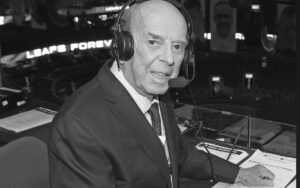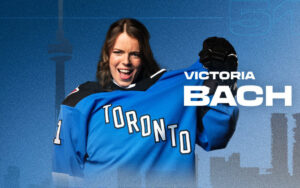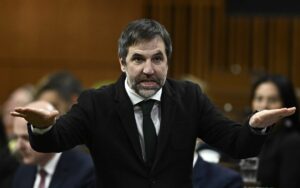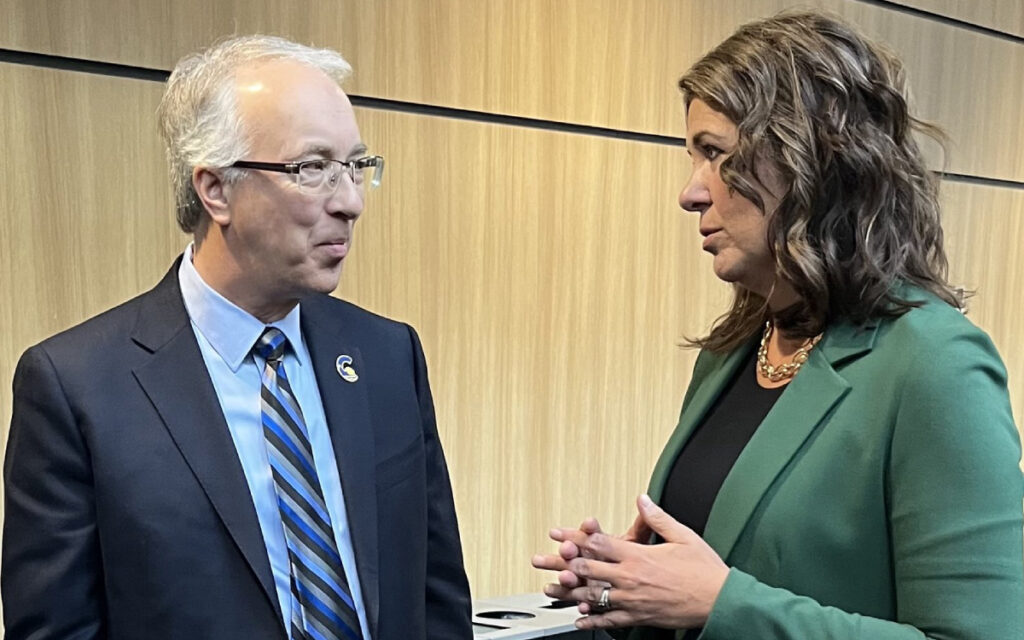
Public opinion polls over the last couple of months have demonstrated growing support for the reinvigorated BC Conservatives under leader John Rustad. Pictured: BC Conservative leader John Rustad speaking with Alberta Premier Danielle Smith. Photo Credit: John Rustad/X.
Something interesting and unexpected is happening in the political climate in British Columbia. An election is pending in October of this year, and a few short months ago it was expected to be a rather boring slam-dunk win for the NDP under leader David Eby. Eby became BC NDP leader following John Horgan stepping down in late 2022. Eby has not yet faced an election as leader.
Recent developments indicate that Eby is not likely to have the easy win that was initially expected. The BC Conservative Party has existed since the early 1900s, but has been in the political wasteland for decades. The last time BC Conservatives were in government was in the 1950s. Recently, the party has begun to pick up an impressive amount of support, much to the surprise of pretty much everyone.
The old BC Liberal party, which had always been much more conservative in policy direction than Liberals in other provinces or federally, decided to rebrand itself under the leadership of Kevin Falcon in late 2022. The new party name, BC United, was chosen as party members believed it was more representative of the political, geographic, social and cultural diversity of party members. It is also likely that the unpopularity of the federal Liberals had a hand in encouraging this name change. Considering the surge in the BC Conservative Party since the Liberal party’s name change, it doesn’t seem that the name change has been a positive development for the former BC Liberals.
Public opinion polls over the last couple of months have demonstrated growing support for the reinvigorated BC Conservatives under leader John Rustad. One recent poll shows the incumbent NDP at 40 per cent support, the Conservatives at 34 per cent, BC United at 14 per cent and the Greens at 10 per cent. This ranking is certainly not what anyone expected just a few months ago. The always fractious B.C. political landscape saw Rustad, a former BC United MLA, cross the floor late last year as he said he disagreed on principle with a number of things BC United supported. Rustad has not, however, ruled out a coalition with the BC United Party so that they can take on the NDP with a united front. If the BC Conservatives gain more strength, however, it’s unlikely he will consider any such partnership.
Issues on which the BC Conservatives have taken a public stand against the NDP include education and climate. Rustad has said his party stands against the so-called SOGI (Sexual Orientation and Gender Identity) approach in public schools as it has been divisive and interfered with what should be basic education objectives. He also has joined the national distaste for the carbon tax as Canadians across the country are suffering from various attacks on the cost of living. It appears the national support for Pierre Poilievre’s Conservatives has also provided a boost to the BC Conservative Party.
It doesn’t hurt the BC Conservatives that current Premier Eby has not exactly covered himself in glory over the past year or so. For example, he came out very publicly supporting a massive change in the laws around land use in the province. Eby was proposing that First Nations should have a veto on land use on Crown lands, which comprises the majority of land in the province. Considering the fact that governments in Canada already face massive delays in decisions on resource projects and other developments, this proposed change to potentially create even more delays was viewed as a very irresponsible and poorly thought-out proposal on Eby’s part. Thankfully, all of the massive criticism of this proposal finally led Eby to withdraw the proposal.
The recent dust-up with one of Eby’s Cabinet members, Selina Robinson, also served to question Eby’s judgement. Some fairly innocuous statements made by Robinson, who is Jewish, led to a full court press condemnation of her, seemingly with anti-Semitic overtones. Robinson ultimately resigned her seat and is sitting as an Independent in the B.C. Legislature, but Eby certainly did not do himself any favours as he went along with the vilification of Robinson, who noted how she had been subject to a considerable amount of anti-Semitism from her NDP colleagues. In light of the fact that the NDP has demonstrated their anti-Semitic leanings on numerous occasions, most recently in the House of Commons with their ridiculously pro-Hamas proposals, Eby’s treatment of Robinson certainly did not help the NDP’s reputation on this issue.
The BC Conservatives currently have all of two seats in the province’s parliament. It will take a lot to bring that seat total to a meaningful number that could either form a sizeable opposition or even, in an extreme scenario, actually form government. There are still several months to go until the BC election, and as always anything could happen. But the meteoric rise of the BC Conservatives surely demonstrates voter dissatisfaction with the current direction of the provincial government. Considering that a federal election will likely be held late in 2025, what happens in BC later this year could be an important precursor of the federal vote.

She has published numerous articles in journals, magazines & other media on issues such as free trade, finance, entrepreneurship & women business owners. Ms. Swift is a past President of the Empire Club of Canada, a former Director of the CD Howe Institute, the Canadian Youth Business Foundation, SOS Children’s Villages, past President of the International Small Business Congress and current Director of the Fraser Institute. She was cited in 2003 & 2012 as one of the most powerful women in Canada by the Women’s Executive Network & is a recipient of the Queen’s Silver & Gold Jubilee medals.









